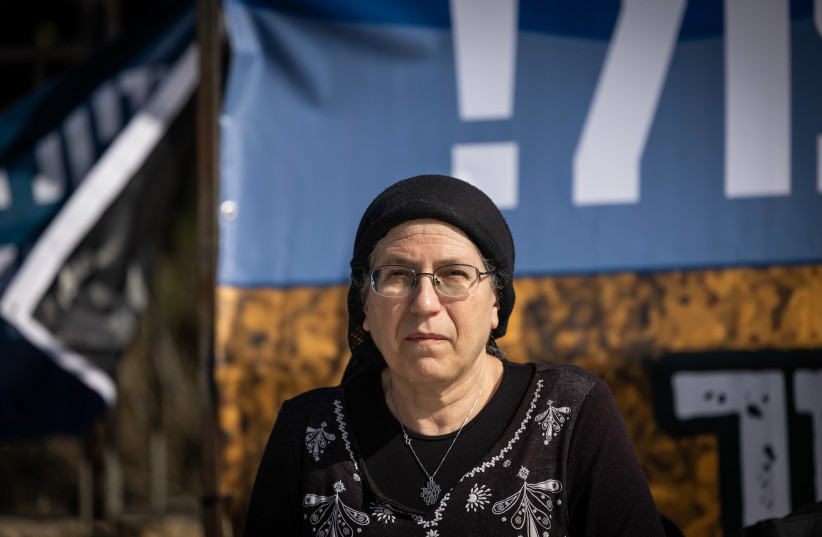The political Right has charged the IDF with “collective punishment” against Israeli settlers for issuing a demolition order on Monday against five structures in the Givat Ronen outpost in the northern West Bank near Yitzhar, just days Jewish extremists in that area torched a vehicle belonging to left-wing activists.
MK Orit Struck (Religious Zionist Party) accused the IDF of exacting vengeance against the outpost because its residents were suspects in the attack. She made use of a parliamentary questioning procedure to demand answers on the matter from Defense Minister Benny Gantz (Blue and White).
Her request for an emergency response to the questions was denied, giving Gantz 21 days to provide her with information.
“Will these homes be demolished by then?” she asked on Twitter.
“It depends on the coalition members.”
Struck posted her four questions on Twitter.

- "What is the legal justification” for the demolition order?
- When has a similar action been taken against Palestinians?
- Will this now be the new policy?
- What precedents are there for collective punishment."
She also posted a photograph of a young couple and their infant child who live in one of the structures, noting that the husband was not even in the area at the time of Friday’s attack. The settlers attacked left-wing activists and Palestinian farmers who were planting saplings near the nearby Palestinian village of Burin.
The husband has not been accused or charged with anything. He has not even been questioned, Struck wrote.
However, apparently, his family has been chosen to pay the price for it, she wrote.
The outpost itself was illegally constructed in 1999, with NIS 150,000 from the Construction and Housing Ministry’s Settlement Division, according to the government’s 2005 outpost report by attorney Talia Sasson.
Some of the outpost structures are built on state land and the remainder are on private Palestinian property.
Most of the outpost is located on land that falls within the boundaries of the Har Bracha settlement, just outside of Nablus, otherwise known as biblical Shechem.
According to Hagit Ofran of the Peace Now NGO, eight of the structures are on private Palestinian property.
The Civil Administration said these structures have received demolition orders in the past.
